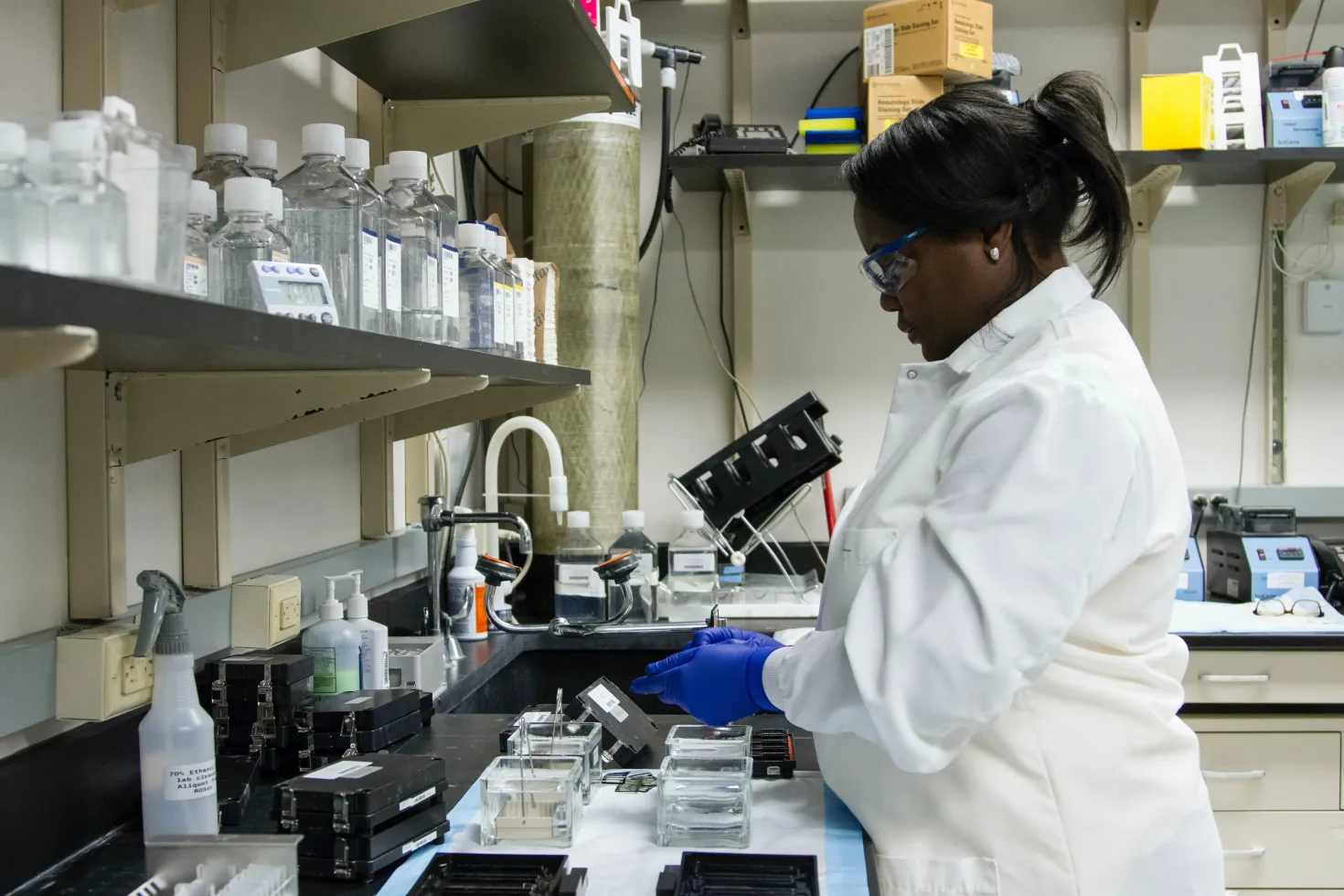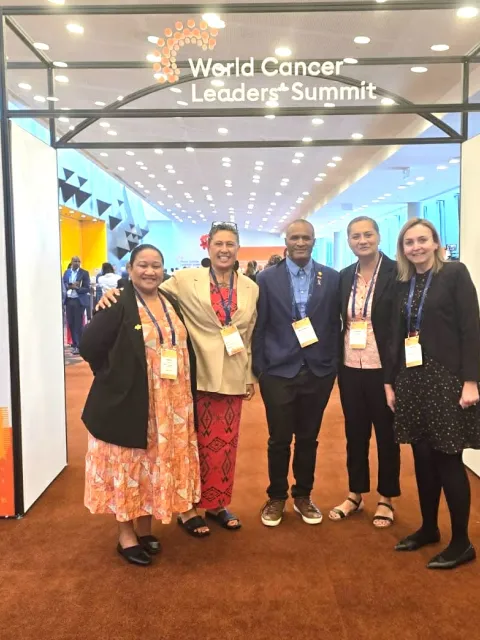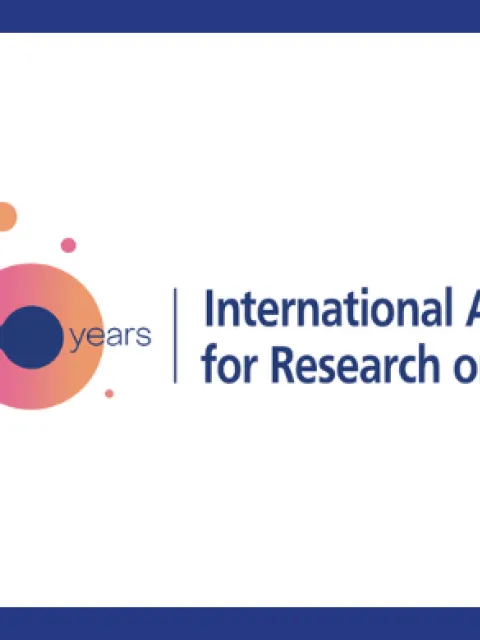Closing the gap between innovation and access in early cancer detection
Advances in early cancer detection are not reaching everyone equally due to persistent barriers and stigma. In this interview, Stephanie Sinclair at Worldwide Cancer Research and Maja Surowicz at Fundacja Onkologiczna Rakiety in Poland, both UICC members, highlight the urgent need for equitable access and public trust.

Advances in cancer research are expanding the possibilities for early disease detection, with new scientific discoveries offering the potential for earlier, more accurate, and more personalised diagnoses. Yet, for many communities worldwide, the impact of these innovations remains limited - barriers such as stigma, misinformation, and inequitable access continue to delay diagnosis and treatment.
Early detection of cancer—including screening and diagnosis—is one of the most effective strategies for improving survival rates. Detecting cancer at an early stage increases the likelihood of successful treatment, often with less intensive and less costly interventions. While some cancers have seen significant improvements in early detection over recent decades, others remain difficult to identify in time, and participation in screening programs remains low in many settings.
Discovery research, which forms the foundation for much of this progress, is the focus of UICC member Worldwide Cancer Research. The organisation funds early-stage, high-risk research across the full cancer spectrum, including projects in diagnosis, treatment and prevention. “We focus on that first step – the early-stage, creative ideas that often carry more risk but also open up new frontiers,” said Stephanie Sinclair, Science Communications Manager. “Without that foundation, later-stage innovations simply can’t happen.”
Projects funded by the organisation include investigations into genetic risk factors, the tumour microenvironment, and novel detection methods. One line of enquiry involves analysing the microbiome in stool samples to detect pancreatic cancer – a disease that is difficult to identify early due to its location and lack of symptoms in initial stages. “The aim is to develop a fast, non-invasive test that could be widely accessible,” said Sinclair. “That could make a real difference, especially in low-resource settings.”
Other research has identified new risk factors for endometrial cancer, including waist size and hormone levels, which could inform targeted screening strategies. In Liverpool, a project is exploring how lung cancer cells adapt to low oxygen environments, potentially revealing new targets for intervention. And in collaboration with South African researchers, work is under way to better understand and treat triple-negative breast cancer, which has a higher prevalence in people of South African heritage.
This type of research, Sinclair emphasised, complements rather than competes with work by pharmaceutical companies. “Our funding often helps researchers generate the initial data that can lead to larger grants or industry investment,” she said. “We’re helping to establish proof of concept – that crucial early evidence that an idea might work.”
Despite advances, gaps in access and awareness continue to affect outcomes, particularly in countries and regions where cancer stigma or distrust of healthcare systems remains strong. This is a reality faced daily by the Polish organisation Fundacja Onkologiczna Rakiety, which provides free psychosocial and informational support to people affected by cancer.
“Many people are still afraid of cancer,” said Maja Surowicz, the foundation’s founder. “There’s this belief that if you are diagnosed, it’s already too late – so better not to know.”
This fear is reinforced by a complex set of factors, including cultural stigma, religious beliefs, and scepticism about the public health system. “We see people avoiding screenings not only because they are afraid of what they might find, but because they don’t trust that the care will be timely or effective,” said Surowicz. “In smaller cities, logistical barriers such as transport also play a role.”
To address this, the foundation has developed a funding model that supports prevention and awareness efforts. By offering cancer prevention workshops to businesses and public institutions, they generate income that allows them to provide free consultations to patients and families. Topics include self-examination, healthy diet, and physical activity, along with guidance on navigating the healthcare system.
“We talk to a wide range of people – teachers, social workers, even police and fire brigades,” said Anna Żuchniewicz, who leads the prevention work. “It’s about meeting people where they are, providing reliable information, and encouraging action without fear.”
The COVID-19 pandemic added to existing challenges. Screening programmes were paused or delayed, and many people avoided healthcare settings out of fear of infection. As a result, diagnoses were often made later, at more advanced stages. “There was a real disruption in cancer care,” said Surowicz. “And we’re still seeing the consequences now.”
One concerning trend is the increasing number of younger adults being diagnosed. The foundation has observed a rise in patients in their 30s and early 40s presenting with cancers such as brain tumours, breast cancer, ovarian cancer and stomach cancer. “This is something we’re seeing more frequently,” said Surowicz. “It adds urgency to the need for prevention and early detection – and to do that, people need to trust the system and feel supported.”
For Surowicz, improving outcomes will require more than just better technology. “We need unified, consistent communication from NGOs, government and the medical community,” she said. “People need to hear the same message from all directions: that early detection is worth it, that support is available, and that cancer is not a death sentence.”
For UICC, these perspectives highlight the importance of addressing both sides of the early detection equation – advancing the science, while also reducing the barriers to access and participation. As new diagnostic tools move from the lab into clinical settings, the challenge will be to ensure that all communities benefit equally.
“Scientific discovery is the key to all of this,” said Sinclair. “Without new discoveries we won’t be able to reach a day where no life in any community is cut short by cancer.”
Last update
Thursday 25 September 2025
